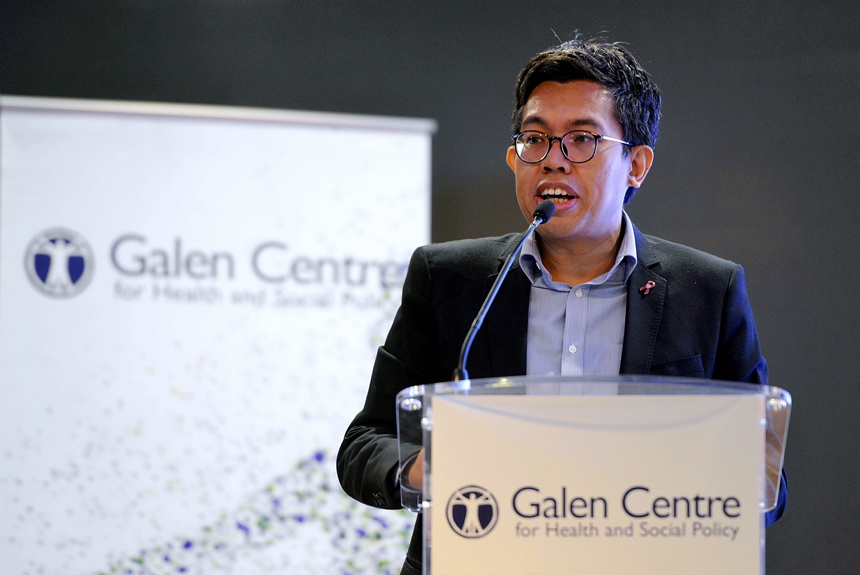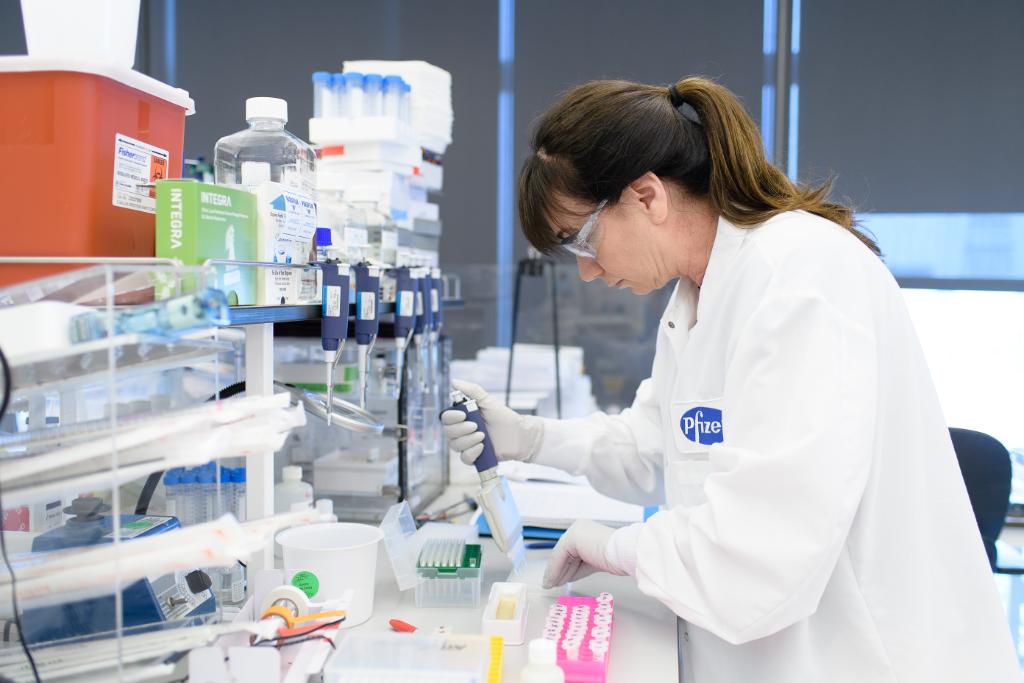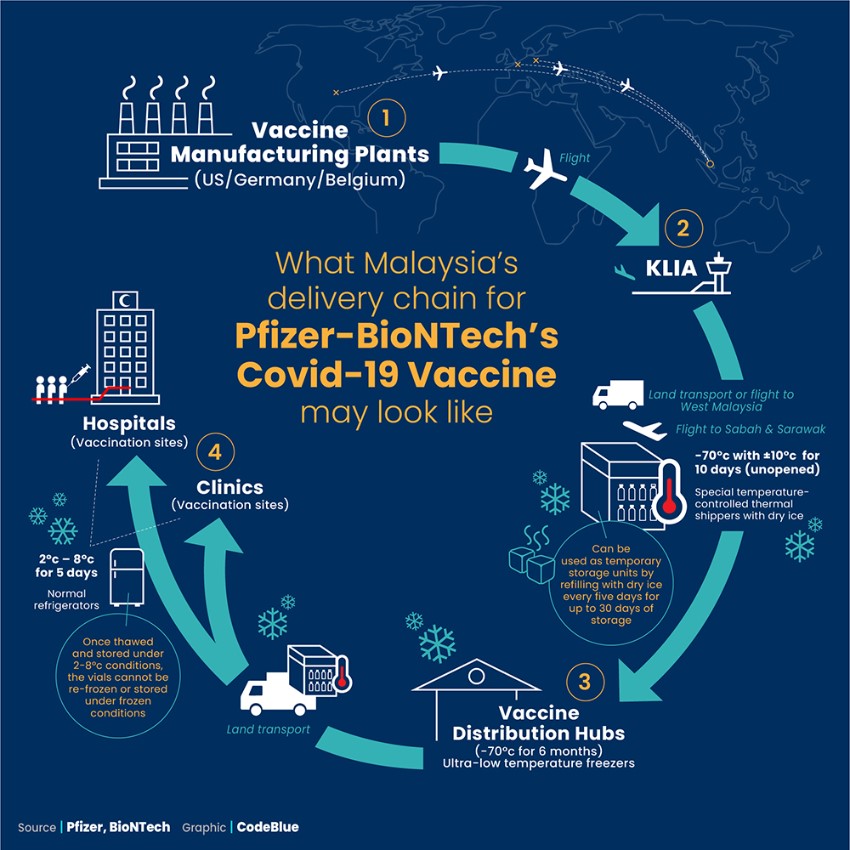KUALA LUMPUR, Dec 14 — Malaysia has successfully secured Covid-19 vaccines for nearly a third of its population, potentially slowing down the epidemic next year that has dramatically surged in the past three weeks.
However, the gruelling distribution process of the vaccine by US pharmaceutical company Pfizer Inc and its German partner, BioNTech — which requires an historically low storage temperature requirement of minus 70 degrees Celsius, as cold as Antarctica in winter — will pose major logistical challenges for an unprecedented vaccination campaign of this scale and complexity in Malaysia.
Even high-income and cold countries like the United States and the United Kingdom foresee massive logistical hurdles in rolling out the Pfizer-BioNTech vaccine, as the UK’s NHS described the Covid-19 immunisation programme as “one of the greatest challenges the NHS has ever faced”.
To put into perspective, Malaysia’s Ministry of Health (MOH) vaccinated about fewer than 500,000 infants or children in 2017 under the National Immunisation Programme (NIP). The first round of Malaysia’s Covid-19 vaccination programme, on the other hand, targets 6.4 million people throughout 2021 with Pfizer’s two-dose regimen (12.8 million doses purchased so far).
Another 10 per cent of the Malaysian population that will be covered next year with vaccines from the global COVAX Facility, co-led by the World Health Organization (WHO), is estimated to number about 3.2 million people. This totals 9.6 million people, 19 times more than those vaccinated under the NIP yearly.
An anonymous personnel from a company that provides cold-chain management visibility solutions spoke to CodeBlue on the possible challenges that Malaysia might face to transport ultra-cold Covid-19 vaccines — right upon reaching airplane cargo in the Kuala Lumpur International Airport (KLIA) from flights from vaccine manufacturing plants in Belgium, the US, or Germany.
It is unclear if Pfizer will deliver its first million doses to Malaysia, by the first quarter of next year, in a single tranche, or if these will be staggered over the next few months.
“Do we have enough facilities which can store vaccines under minus 70 degrees?” the person told CodeBlue on condition of anonymity due to the sensitivity of the issue.
“It needs an ultra-low freezer to store vaccines under minus 70 degrees. We should invest in that technology if we have decided to buy that vaccine.
“The technology is available to transport the vaccines from distribution centres to local clinics or hospitals using temperature-control packaging. The current temperature-controlled packaging solutions are able to provide thermal protection at two to eight degrees Celsius, minus 20 degrees Celsius, and minus 70 degrees Celsius for temperature-sensitive payloads.”
MABkargo, a cargo airline, did not respond to CodeBlue’s questions at the time of writing on whether it had capacity, such as special unit load devices (ULD), to carry Covid-19 vaccines with ultra-cold temperature requirements. ULDs are containers for baggage and cargo.
From KLIA, the first point of arrival in Malaysia, Covid-19 vaccines will likely then be delivered to distribution hubs, either through domestic flights or land transport, where they can be stored for six months in ultra-cold freezers at minus 70 degrees Celsius. The government has not yet said where vaccine distribution hubs will be located.
The vaccines can then be delivered from distribution hubs to vaccination sites — likely public clinics and hospitals — in Pfizer’s temperature-controlled thermal shippers packed with dry ice to maintain storage temperature conditions of minus 70 degrees Celsius, higher or below 10 degrees, for up to 10 days unopened. The reusable box is able to store up to 5,000 doses. These special thermal shippers can also act as temporary storage units by refilling with dry ice every five days for up to 30 days of storage.
Upon delivery to the respective vaccination centres or sites, the Pfizer-BioNTech vaccine, once thawed, must be used quickly as it can only be kept for five days at normal fridge temperature of two to eight degrees Celsius. The government has not yet stated which states or districts vaccination sites will be set up in. It is likely that for the first round of immunisation with Pfizer’s vaccine, due to its tricky storage requirements, densely populated cities or towns may be prioritised first.
The major problem in Covid-19 vaccine transportation is the last-mile. An unbroken cold chain has to be maintained throughout various modes of transportation until carrying the vaccines to respective vaccination centres.

Galen Centre for Health and Social Policy chief executive Azrul Mohd Khalib said the challenge of storing and distributing Covid-19 vaccines in Malaysia is similar to the difficulties faced by countries worldwide.
“We need to make an honest and pragmatic assessment of our capacity as it is essential to the success of any vaccination effort,” Azrul told CodeBlue.
“The logistical challenge that we’re facing is on a scale and urgency that we have never experienced before in the history of not only this country, but any country in the world.”
Azrul Mohd Khalib, chief executive of the Galen Centre for Health and Social Policy
He added that due to long-standing relationships, Pfizer is likely to use pharmaceutical distributors Zuellig Pharma or DKSH to distribute its Covid-19 vaccine in Malaysia.
Local pharmaceutical company Pharmaniaga Bhd, which distributes a significant portion of MOH facilities’ medicine supply, said in a statement on November 30 that it has logistics and distribution experience covering minus 20 degrees Celsius and two to eight degrees Celsius temperature requirements.
When asked for comment on the specifics of the storage and distribution of Pfizer’s Covid-19 vaccine, Pfizer Malaysia declined to speak, telling CodeBlue that it would make an announcement in two weeks.
Science, Technology and Innovation Minister Khairy Jamaluddin previously said Malaysia’s Covid-19 vaccine agreement with Pfizer covered “delivery to multiple points of vaccination”.
He also stated that Malaysia has ultra-cold storage capabilities, including minus 80 degrees Celsius freezers all over the country, noting that public universities and public research institutions in Malaysia have more than 125 ultra-cold freezers. But if those freezers cannot be redeployed, then the Ministry of Science, Technology, and Innovation Ministry (MOSTI) ensured to make arrangements for the procurement of additional ultra-cold freezers.
Seven Countries Have Approved Pfizer Vaccine

The US’ FDA announced on December 11 that it has issued emergency-use authorisation (EUA) for the Pfizer-BioNTech Covid-19 vaccine to be distributed in America, saying it found the vaccine to be safe and 95 per cent effective in preventing Covid-19 disease.
“The data also support that the known and potential benefits outweigh the known and potential risks, supporting the vaccine’s use in millions of people 16 years of age and older, including healthy individuals,” the FDA said in a statement.
The US’ authorisation of Pfizer’s Covid-19 vaccine comes after the UK and Canada’s regulatory approval. Health authorities in Bahrain, Saudi Arabia, Kuwait, and Mexico have also approved the Pfizer shot.
Utusan Malaysia reported Prime Minister Muhyiddin Yassin as saying in Johor yesterday that he has instructed Health Minister Dr Adham Baba to request Covid-19 vaccine suppliers to expedite delivery of the vaccines that are expected to arrive in Malaysia by March 2021.
“If we were to await the usual tests for ordinary vaccines, perhaps two years, we may not be able to get supplies. I have already given instructions for expedited delivery, whether [the vaccines] are effective or not. Don’t wait until the people get angry at the Prime Minister,” Muhyiddin was quoted saying.
He also reportedly said he has ordered Khairy to continue negotiations to increase Malaysia’s Covid-19 vaccine stocks from 30 per cent to 60 or 70 per cent. MOH has reported an average of 1,540 daily Covid-19 cases nationwide in the past seven days from December 7 to 13.
“The government was forced to use the RM3 billion allocation; now we have already spent RM2 billion, but the vaccines have not arrived yet.”
It’s unclear what exactly the RM2 billion, as cited by Muhyiddin, was spent on. Khairy previously said Pfizer’s vaccine costs “significantly less than RM100 per dose”, including delivery to points of vaccination, which equates to less than RM1.28 billion for 12.8 million doses covering 6.4 million people.
Sarawak Reportedly Plans To Rent Fewer Than 10 Ultra-Cold Freezers

Consultant paediatrician Dr Zulkifli Ismail raised problems with deep-freeze delivery of Covid-19 vaccines in Malaysia, particularly in rural areas. Recently, British health authorities noted that Pfizer’s Covid-19 vaccine can only be moved four times within its cold chain before use. Once defrosted, the Covid-19 vaccine only has a days’ long lifespan.
“In rural areas, even if they use back-up electricity for blackouts, the cold chain sometimes can be broken, although all measures are taken by the health clinics to prevent such an event,” Dr Zulkifli told CodeBlue.
The New York Times reported that Pfizer vaccines will be shipped in the US through special coolers packed with dry ice, holding a minimum of 975 doses which must be used up within a few weeks, or stored in an ultra-cold freezer for up to six months.
This parallelly raises a question on the possibility of delivering the vaccine to small communities in rural areas in Malaysia.
Bandar Kuching MP Dr Kelvin Yii said that the Pfizer vaccine will definitely pose some logistical challenges, as facilities and infrastructure for such specialised storage is severely lacking in rural areas.
“I was informed in Sarawak they intend to rent less than 10 of such [ultra-cold] freezers and place them only in the major cities and towns, thus limiting the vaccination sites and pose logistical issues for those travelling from the rural areas,” Dr Yii told CodeBlue.
The Sarawakian lawmaker said that the possible limited number of vaccination sites in Sarawak will make things harder for those from rural areas to travel to the respective vaccination centres.
He pointed out, for example, that it takes four to five hours to travel from the village of Long Semadoh to the town of Limbang, or two to three hours to travel from the small pekan of Lubuk Antu to Sri Aman town. Travel from villages in the interiors of Sarawak also depends on weather conditions and the availability of transport.
“It will not only be expensive for them to travel to get the first dose, but even more to travel all the way back after three weeks for the second dose. This may increase risk of them not returning for their second dose causing them not to develop sufficient antibodies to provide proper protection.”
Dr Yii emphasised on transparency that should be exercised by the government on the immunisation plans it is drawing up to ensure that all, regardless of their demographics, can obtain the necessary vaccination.
Reporting by Kanmani Batumalai; Editing by Boo Su-Lyn.








